47 videos match your search.
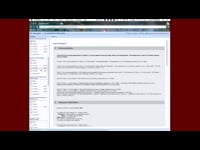 |
Faisal Whelpley This talk explores how users can learn math by making math with the Making Math platform, which combines Mathematica, courseware content, and learning management. These technologies enable learners to engage ... |
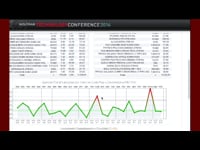 |
Rodrigo Murta The Wolfram Language is a powerful problem‐solving toolbox for business. This talk shows how it can be used for sales forecasts, automated reports, financial outlier alerts, category management analysis, ... |
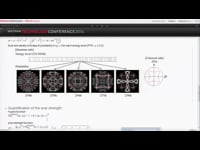 |
Keita Sumiya This talk covers how Mathematica is used to explore the periodic orbit theory in the Anisotropic Kepler Problem and Devil's Staircase surface faceting. |
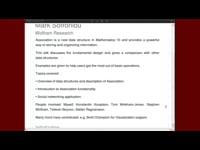 |
Mark Sofroniou Association is a new data structure in Mathematica 10 that provides a new way of storing and organizing information. This talk discusses the fundamental design and gives a comparison with other ... |
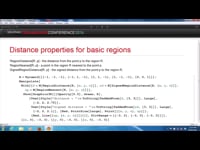 |
Adam Strzebonski Mathematica 10 introduces systemwide support for computation with mesh-based, discretized, and exact symbolically specified geometric regions. This talk focuses on symbolically specified regions, discussing ways of specifying regions, presenting functionality for ... |
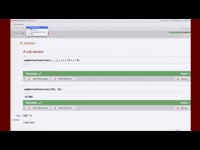 |
Raj Balaebail Users can easily write and run tests with the new built-in testing framework in Mathematica 10. This talk demonstrates how the symbolic character of the Wolfram Language lets you immediately run ... |
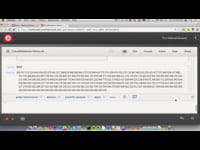 |
Jan Poeschko and Joel Klein Learn about the notebook interface in the cloud and what you can do and build with it. This talk gives an overview of the latest advances in cloud notebook rendering ... |
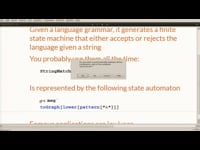 |
Abdul Dakkak This presentation explains how to perform nontrivial computer science research using Mathematica, including compiler-based optimizations that can be coded from within Mathematica. |
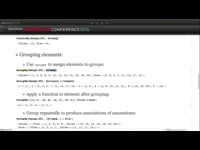 |
Taliesin Beynon and Hernan Moraldo New in Mathematica 10, Dataset introduces a general-purpose container for storing tabular or hierarchical data using lists and associations. This talk covers the query language of Dataset, ascending and descending operators, ... |
 |
David Smrcka This talk covers an interactive simulation of the diesel cycle in Mathematica, theoretically describing the processes in diesel engines. Using this simulation in lectures, students are able to better visualize the processes taking place in ... |
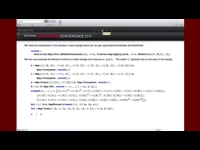 |
Richard Gass Mathematica 10 introduces powerful functions for region-based computation. NDSolve solves PDEs over arbitrary regions, but current built-in methods cannot solve elliptical eigenvalue problems over arbitrary regions. This talk shows how to ... |
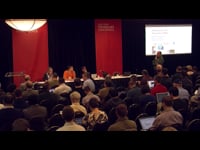 |
John Fultz, Roger Germundsson, Tom Wickham-Jones, and Arnoud Buzing In this talk, Wolfram's expert panel presents a summary of new Mathematica 10 features and answers audience questions about algorithms and R&D. |
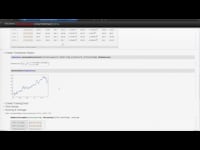 |
Fahim Chandurwala Wolfram Finance Platform accesses live market data feeds from data providers. Integrating these feeds with Wolfram technologies lets users incorporate real-time computation and monitor market behavior. This talk covers calls ... |
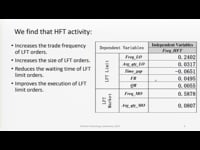 |
Kun Li Compared with traditional market makers, high-frequency trading has a larger impact on low-frequency liquidity and order-execution quality. This talk examines how high-frequency trading affects low-frequency trading. |
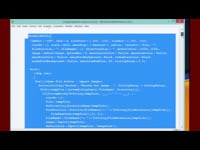 |
Filip Novotnę An image-processing app analyzes plasmonic noble metal nanoparticles (MNPs). Learn how Mathematica's built-in image processing algorithms and dynamic functionality create a fluid user interface with improved workflow. A GUI notebook ... |
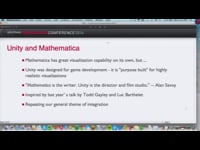 |
George Danner Mathematica is the most powerful technical computing platform in the world. Unity is an open-source game engine that is the key framework for most of the mobile games and many ... |
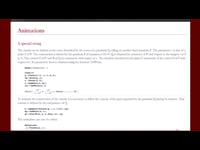 |
Bruno Autin GeometricaPlus covers two types of interactive functions. The first one concerns libraries of geometrical objects, and the second one concerns intersections. In this talk interactive applications and animations illustrate how ... |
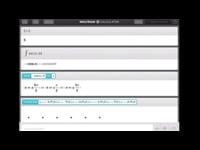 |
Robert Raguet-Schofield This talk explores running the Wolfram Language and Wolfram Languagegenerated content on iOS devices and the different options available to do it. |
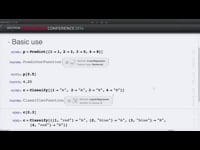 |
Etienne Bernard In this talk, Etienne presents the new machine learning functionalities of the Wolfram Language (Classify, Predict, and related functions). These functionalities aim to simplify the practice of machine learning by ... |
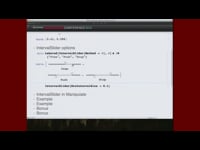 |
Lou D'Andria The Manipulate function is the basis for the Demonstrations Project and Wolfram CDF Player, but just how well do you know it? This talk empowers you to become an expert ... |